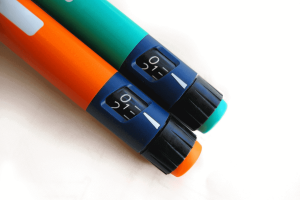Spotting Early Warning Signs of Diabetes
Early signs of diabetes go ignored because the symptoms may seem harmless (such as general fatigue or thirstiness). People take a nap, get something to drink, and their diabetes goes undiagnosed and untreated.
Nearly 7.2 million people with diabetes are undiagnosed.
– The American Diabetes Association
Potential diabetes symptoms to look for:
- Excessive thirst and increased urination
- Fatigue
- Weight loss
- Blurred vision
- Slow-healing sores or frequent infections
- Tingling hands and feet
Although some symptoms might seem harmless or unrelated to diabetes, they can actually be a direct result of your body’s inability to process sugar properly. If you’re experiencing any of these symptoms, or have a loved one in your life who’s experiencing them, it’s important to see a doctor as soon as possible.
Iowa Diabetes’ Dr. Anuj Bhargava is a strong advocate of early screening for diabetes. One reason why is because a relatively young patient of Dr. Bhargava’s was hospitalized for a heart attack, only then to be diagnosed with diabetes soon after.
“A heart attack doesn’t have to be the first symptom of diabetes… If [my patient] had been screened regularly, then it would be a different story.”
Dr. Bhargava
Receive a screening, if you…
- Are overweight
- Age 45 and older
- Have family history of diabetes
- Exhibit other risk factors like high blood pressure
Receiving a screening is the first step on the path to diabetes management and healthier living.
Make note of the signs and symptoms and make sure to see your physician if you experience any of them. The earlier the diagnosis of diabetes, the better control you can take of it.
Summary
Many of the early signs of diabetes go unnoticed or are not given much importance. Some of these signs are: tingling of the hands and feet, weight loss, extreme thirst, and frequent urination. If you or a loved one experience any of these symptoms, visit your doctor to be screened. Getting screened as early as possible could make a huge difference and prevent major health complications.




